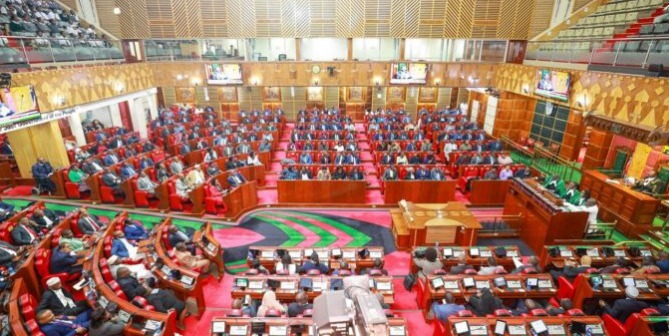The Directorate of Criminal Investigations (DCI) has dismissed a widely circulated warning about a purported cryptocurrency opportunity as fake, clarifying that the alert did not originate from the agency.
In an official statement, the DCI urged Kenyans to disregard the message, which falsely claimed that the agency had flagged a Ponzi-style cryptocurrency scheme masquerading as a genuine investment platform.
The fake alert alleged that the scheme was targeting unsuspecting citizens with promises of quick profits before defrauding them, and advised victims or potential investors to report to the DCI’s Economic Crimes Unit or the nearest police station.
While correcting the misinformation, the DCI acknowledged that such schemes indeed exist and continue to defraud Kenyans, but stressed that the specific warning circulating online was not issued by the agency.
Ponzi and pyramid schemes remain illegal in Kenya under several statutes, including the Penal Code, the Capital Markets Act, and the Proceeds of Crime and Anti-Money Laundering Act. Offenders risk fines of up to Ksh10 million and/or imprisonment for up to 10 years, depending on the nature of the charges.
The clarification comes just two weeks after Parliament passed the landmark Virtual Asset Service Providers Bill, which seeks to regulate digital assets such as cryptocurrencies.
The proposed law designates the Central Bank of Kenya as the licensing authority for stablecoins and other virtual currencies, while the Capital Markets Authority will oversee the licensing of crypto exchanges and trading platforms.
With Kenyans estimated to hold over USD 1.2 trillion (Ksh155 trillion) in virtual assets, the legislation aims to introduce oversight and investor protection mechanisms in an increasingly active digital finance space.
An IMF report earlier this year revealed that Kenya used stablecoins to settle international obligations during the recent U.S. dollar shortage and as a hedge against shilling volatility.
Once President William Ruto assents to the bill, Kenya will join South Africa as one of the only African nations with a comprehensive legal framework for digital assets, a major milestone in the country’s financial innovation agenda.









